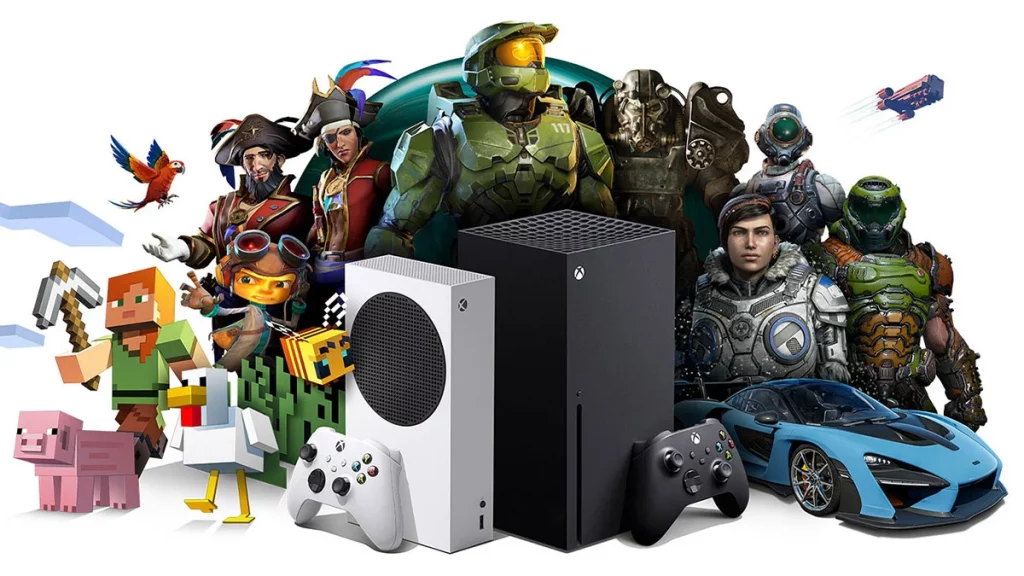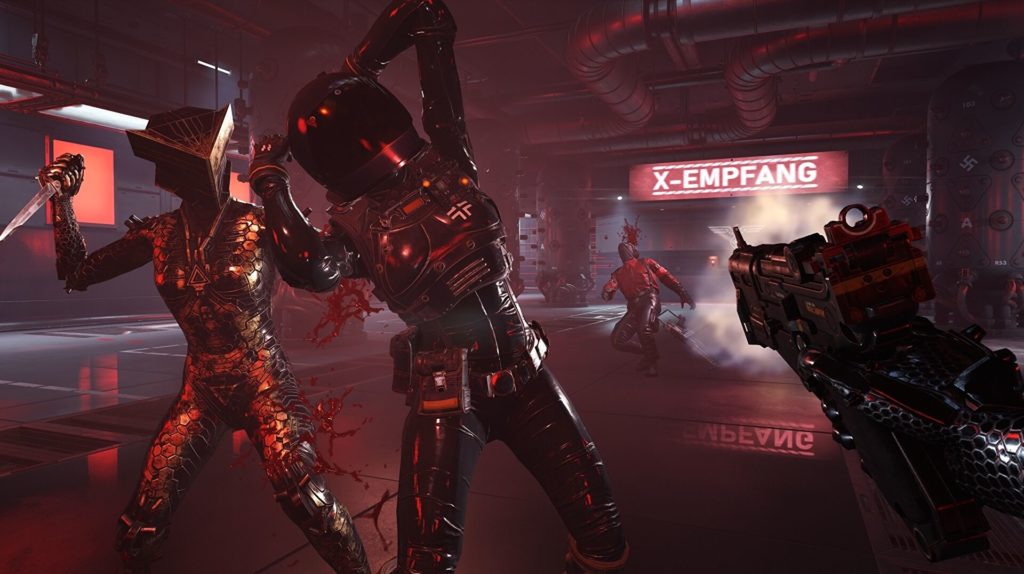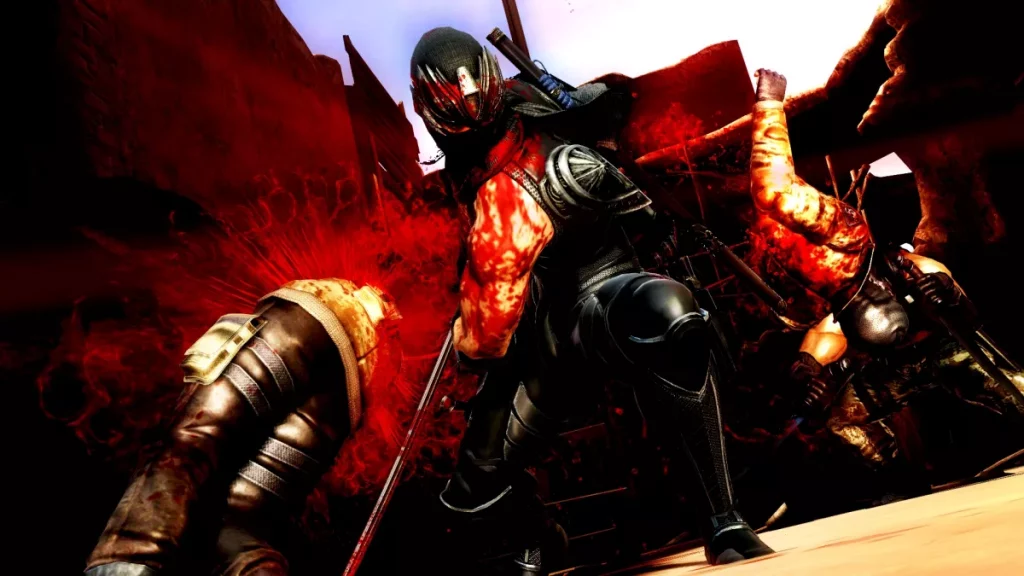Microsoft must really want people to buy Game Pass subscriptions. Not only do they keep putting it on sale (sign up for 30 days for only $1, even if you already previously subbed!), but they keep allowing for all sorts of hacks that allow you to extend a Game Pass sub for less than face value.

In fact, they’re not just allowing it, but enabling it. If you buy three months of Xbox Live Gold, you can convert it into 50 days of Game Pass Ultimate. So when I found a place selling 3-month codes for Gold for only five bucks, I managed to land myself a little more than half a year’s worth of Game Pass Ultimate for less than the cost of a single month.
Sounds like a dream come true, except it’s not. The problem I’m facing is that, to be honest, Game Pass offers nothing that really lights my fire and only a handful of games that I’m kinda/sorta interested in. So I played a few, and I’m reporting now on how they went.
Wolfenstein: Youngblood
I like the concept of a Wolfenstein game with a new protagonist, as opposed to series standard bearer BJ Blazkowicz (who, to be clear, is not a bad character, especially not the version from the modern reboot series). I especially like the concept of playing as BJ’s teenage twin daughters. There’s a lot of interesting ideas to mine from this pitch, and early on the game actually manages to dig some of it up.
There is a strange, potent, and seemingly deliberate sense of dissonance that comes from watching two teenage girls essentially “OMG LOL” their way through brutally murdering Nazis. If it was set a little closer to the present, I could easily see them taking selfies in the aftermath of their carnage.
It sounds more gratuitous and superficial than it is. This is the game asking a question – what if you train a bunch of adolescents to fight against an enemy they’ve never directly suffered against? They may buy into the hatred you instill into them, and they may be extremely effective at killing (especially if you give them suits of powered armor), but there is always going to be a sense of disconnect to the proceedings.

Indeed, the Blazkowicz twins treat their quest like a sort of game, which doesn’t seem far off from the way a lot of naive, disillusioned young men feel when they go off to war (I’ll leave it up to you whether or not this is a commentary on the player themselves). For a number of reasons (some of them even reasonable!), I can imagine that this won’t be everyone’s cup of tea. But it’s an idea with a certain amount of grounding in reality, and it’s one that is not lost on the development team.
Did I Finish It?
Not yet! Which is why I can’t say whether they continue to do good by this theme.
Why Haven’t I Finished It?
People on the Internet are fond of saying that Youngblood is not so much a true Wolfenstein sequel as it is an experiment for testing new ideas. I’m not sure where this idea came from, and I’m too lazy to check (it’s got to be someone on the dev. team – that’s way too much of a talking point to have come naturally from fans).
What I do know is that “experiment” is code for “Bethesda wanted Machinegames to test the waters as to whether or not Wolfenstein would work as a Live Service game.” And based on what I played, I can tell that it does not, in fact, work well.
The Death of Wolfenstein
Let’s be clear about one thing – the fact that fans and critics reacted so negatively to Youngblood doesn’t mean that Bethesda learned any sort of lesson. I doubt anyone said to themselves “well, I guess that means we should only make pure, traditional, microtransaction-free Wolfenstein games.” If a publisher learns there isn’t an audience for their latest crack at Recurrent User Revenue, they’re more likely to react in one of two ways:
- Make the Live Service game anyway
- Kill the franchise entirely
Basically, if they can’t get you to pay them forever, they’d rather burn everything to the ground than let you pay them once. And they’ll be sure to find a way to blame you when it happens!
Youngblood has experience points and level ups and unlockable skills. It has lots and lots of weapon upgrades, and it has gun and character skins that you can pay for with real cash.
Enemies also have levels (and weaknesses), and allegedly the game has you return to the same handful of large maps to fight increasingly stronger enemies (I haven’t gotten far enough to know firsthand).
These are all the hallmarks of a Live Service, “Looter Shooters” like Destiny, though Youngblood is not technically a full-on Live Service experience. It still has a campaign, which means it has a story and, more importantly, it has an ending. That means there is a limit to how far you can level up, and how many things you can unlock. There are weapon mods, but only a fixed number of weapons. There’s no such thing as a Rare Pistol +2 to replace your Uncommon Pistol +1. In theory, there is only so much the Live Servicey junk can do to get in the way of the game’s (still) raw, brutal first person action.
And yet there were definitely a few moments, even early on, in which particular enemies felt like bullet sponges. And that was when I decided I’d had enough. I know how to play these games, and I know how many times I have to hit something to kill it. I don’t need a game that wastes my time because some bad guy’s stats are unreasonably high.
Will I go back and finish it?
Probably. I need to see where the story goes, and if the characters are any more fleshed out. And I need to see how Machinegames filters the 1980’s through its weird alt-history, in which the Nazis encounter pop culture.
I just may not linger within the game any longer than I have to.
The Outer Worlds
It’s a Fallout style RPG by Obsidian. What more need I say?
Did I Finish It?
Not even close! I couldn’t get past the tutorial, where it asks you to both sneak past and shoot enemies.

Why Haven’t I Finished It?
I don’t know why this tutorial bothered me. Fallout 4 does the exact same thing. But that game does a pretty good job of framing its tutorial – you’ve woken up in a Vault filled with Radroaches, and you need to find your way out. The Outer Worlds drops you on a planet filled with bad guys because reasons. It feels hollow and forced, and I instantly assumed that the rest of the game would feel the same way. I like the general formula behind this kind of RPG, but I’ve played enough of them that now I need to see something more.
Also, I have a feeling that the game’s whole “corporations rule everything!” schtick isn’t going to be nearly as poignant as it should. I don’t need a story that ends up being this political cartoon stretched out across dozens of hours:
Will I go back and finish it?
Of all the games I tried out so far, I think I may be least likely to revisit this one. I’m as surprised as anyone to be saying that. Maybe someone in the comments can change my mind.
Ninja Gaiden 3: Razor’s Edge
Ninja Gaiden 3 is the only one of the modern Ninja Gaiden games I haven’t played, on account of the fact that the initial release was widely considered to be terrible. But Razor’s Edge is basically equivalent to Ninja Gaiden Sigma, in that it adds to and fixes a whole lot of stuff, to the point where most fans consider it to be pretty good.
It’s definitely a NG game, with all that entails, but that doesn’t mean it’s more of the same. There is a greater reliance on finishing enemies off with certain kinds of special techniques, both because you can, and because it’s necessary for your survival.
I find this to be both viscerally satisfying and also less interesting than the previous two games. In the original Ninja Gaiden, for instance, you didn’t always know when a move would lop a guy’s head off. There was a sense of ambiguity to the combat system that made it feel refreshingly real (for a certain definition of real). A fight ended when it ended, though unless you were really bad at it, it would feel like it ended exactly when it should.
This game, however, is more like Metal Gear Rising, where you can cut an enemy’s limb off, and they’ll still try to attack you – and failing to finish them off can be your undoing. It’s not bad, just different for this series.

Did I Finish It?
No, but I spent the most time with it of the games on this list.
Why Didn’t I Finish It?
I feel like I could write a whole post about this (and I just may). I can still play tough games like this. If I wanted to, I could probably still play them on their toughest difficulties.
But I just don’t feel like it. I no longer get a strong sense of accomplishment from beating a tough game. Instead of feeling like something I earned, it feels like I wasted a whole lot of my increasingly precious free time banging my head against a wall until I broke through. It is time I could have spent doing something more productive and/or tangible and/or rewarding. Like spending even more time playing with my children. Or building something. Or writing!
By the end of the night, I felt a sense of emptiness in my stomach. It’s not a feeling I liked, nor is it one I relish to experience again.
Will I go back and finish it?
I think so. I’ll probably crank it down to its easiest difficulty and just power through. While the game may not be worthwhile as an exercise in challenge, I think it can still have value as a full throated power fantasy, where you just get to run around as an Awesome Ninja.
Conclusion
I don’t want to sound too depressing, but there is a lesson to be learned here. When you’ve spent enough years playing enough different kinds of games, you find yourself getting tired. Tired of playing the same things again and again and again, while also being too tired (read: busy) to sift through indie games to find something original and engaging.
I have Game Pass Ultimate until the middle of January. It only cost $15 total to get it. If I only beat a single game, it will have paid for itself and more. And yet here I am wondering if I just threw money away. Hopefully I’ll find something worth my time.

